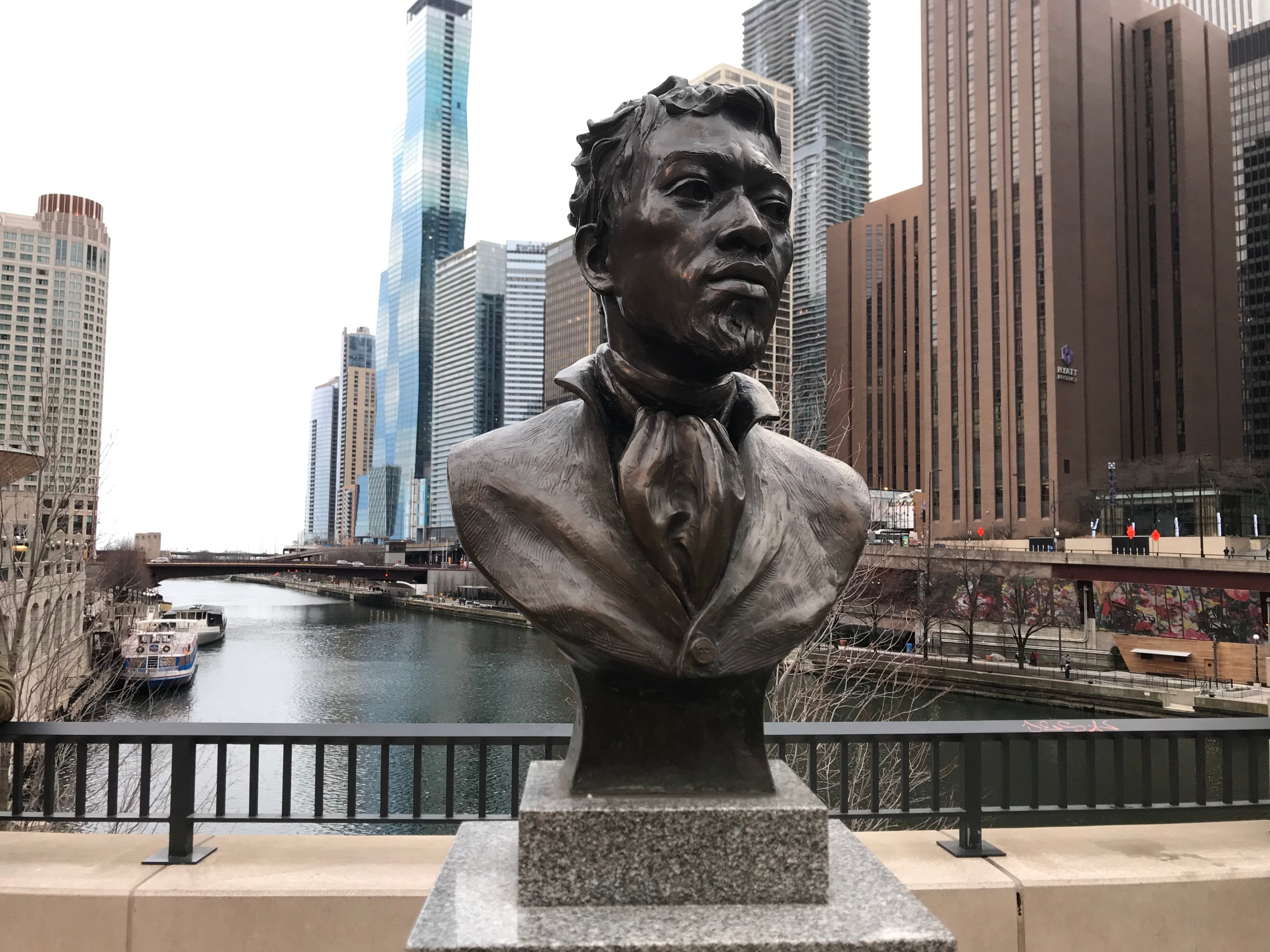During a contentious City Council committee meeting on the proposal to rename the outer lanes of Lake Shore Drive for Jean Baptiste Point du Sable, the Black man who founded Chicago, a white alderman who was recently revealed to have made bigoted remarks offered straw man arguments against the initiative, while African-American and Latino reps characterized opposition to the plan as racist. During the sometimes-heated discussion, four-letter words were uttered. But the important thing is that the initiative passed in committee, so it's slated to move on to the full Council for a vote.
Advocates from the group Black Heroes Matter have long pushed for changing the name of LSD to pay tribute to DuSable, as well as establishing a city holiday in his honor, and erecting a 25-foot-tall monument in Grant Park. (I’ve previously endorsed the LSD plan in a Chicago Reader op-ed.) In October 2019, 17th Ward alderman David Moore introduced a new DuSable Drive ordinance, which has been discussed at multiple meetings of the Council’s Committee on Transportation and Public Way.
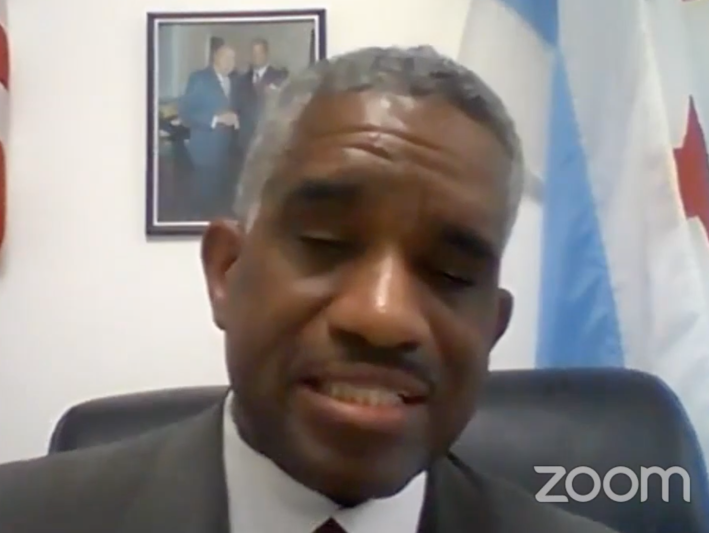
During a Transportation committee hearing on the Lake Shore Drive proposal last December, Chicago Department of Transportation commissioner Gia Biagi read a statement that expressed support for honoring the Black pioneer. She noted that renaming the outer driver, while retaining the old name for the inner lanes, so that almost no street addresses would need to be changed, would be a complex, but not insurmountable, task. However, internal CDOT emails later obtained by Streetsblog Chicago showed that, behind the scenes, other department officials were actually opposed to the name change.
At today's Transportation committee hearing, during the public commentary portion, representatives of Black Heroes Matter passionately testified that a citywide tribute to DuSable, a trading post proprietor whose contribution to the city was long downplayed due to the color of his skin, would be a step in the right direction towards achieving racial equity. Existing tributes to DuSable include the eponymous bridge at Michigan Avenue, a downtown harbor, a couple of short side streets, and the DuSable Museum of African-American History in Washington Park.
BHM rep and retired judge Shelvin Louise Marie Hall quoted Ecclesiastes. "To every thing there is a season and a time to every purpose. Today it's time to make a change... to rename LSD and finally honor the founder of Chicago." She noted that local landmarks like the Sears Tower, Sox Park, and Marshall Field's have all seen name changes in recent decades. And she argued that by voting yes on Moore's ordinance, the committee would be on the right side of history.
Committee chair Far South Side alderman Howard Brookins Jr. then invited assistant CDOT commissioner Tom Carney to present a "substitute ordinance" that Carney said would better clarify that only the outer lanes of Lake Shore Drive would be impacted by the name change, so that most addresses would be unaffected.
Moore responded by angrily calling CDOT substitute ordinance, presented just before the scheduled committee vote on Moore's legislation, a "last day game plan," and "some racist b-------." A few more aldermen chimed in arguing that the department's ordinance seemed reasonable.
"That's f---in' b------!" Moore eventually shouted. Other aldermen condemned him for his language and called for a recess. Someone played ironically played "Kumbaya" on their phone.
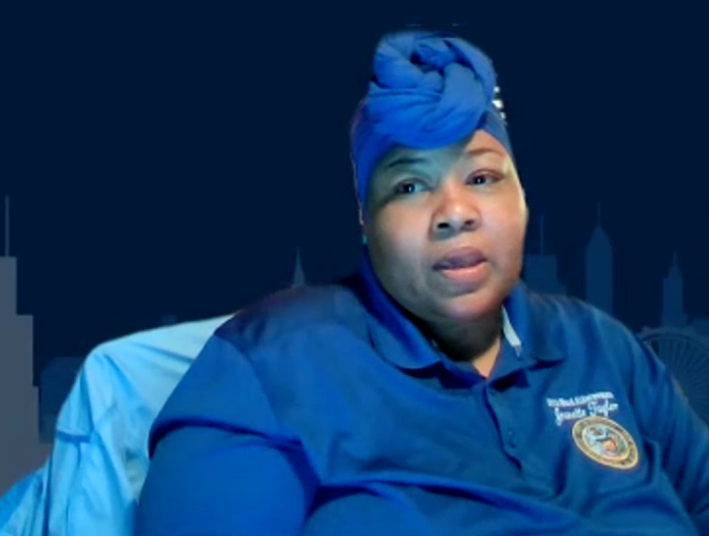
After a short break, 20th Ward alderman Jeanette Taylor backed Moore up in opposing CDOT's ordinance. "It just seems real racist to me. This is the founder of Chicago... all of the sudden [CDOT] throws a monkey wrench into it... If people had a problem with it, they should have said so earlier. I'm looking at y'all real strange."
"I agree this is absolutely racist," seconded 40th Ward alderman Andre Vasquez, describing the calls for decorum against Moore as "tone policing," and arguing that city officials were trying to stonewall Moore's proposal.
That was when we heard from Southwest Side alderman Ed Burke, a leader of the racially-charged "Council Wars" opposition to Chicago's first Black mayor Harold Washington in the 1980s. Burke is currently is under federal indictment for corruption, and last week he was revealed to have been caught on tape by the feds making anti-Jewish remarks.
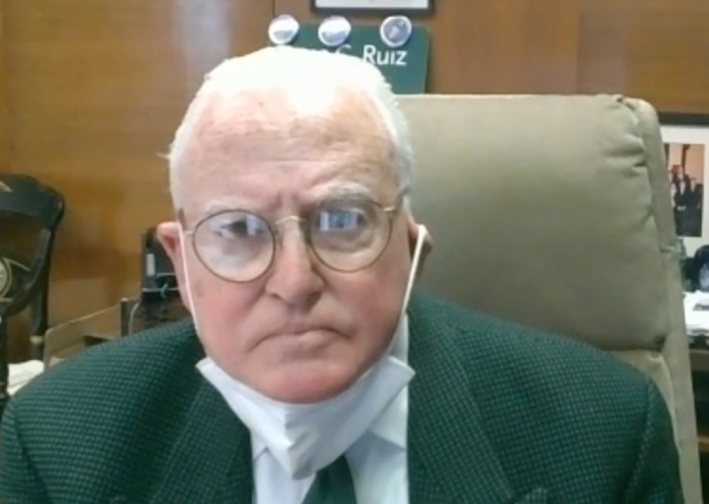
Burke said he'd been looking through an atlas that showed a bend in Lake Shore Drive near Soldier Field as "George Halas Drive," in honor of the late Chicago Bears coach. "If [Moore's] ordinance is designed to obliterate that section of LSD that is already named for George Halas, one would suspect that there has to be some kind of specific reference to that."
CDOT chief Gia Biagi responded that the Halas street name is an honorary street designation, where as DuSable Drive would be the official name of the roadway. "Someone should tell the mapmakers, because on the atlas it's clearly identified as George Halas Road," Burke responded. "Unfortunately we don't control the mapmakers," Biagi said.
Near South alderman Sophia King suggested that the committee go ahead and pass ordinance, and then clean up any needed bureaucratic matters before the full Council vote. She discussed the pushback that she and downtown alderman Brendan Reilly received during their successful effort to rename Congress Parkway for Ida B. Wells. (However, she didn't mention that they had originally proposed renaming Balbo Drive, which honors a Blackshirt leader who helped bring Benito Mussolini to power, for Wells before caving to pressure from Italian-American civic groups.)
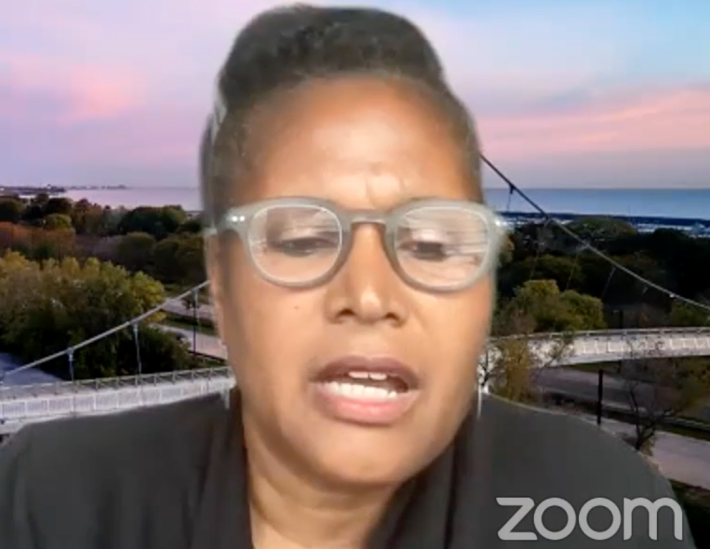
King noted that in other cases, such as the Council's approval of the Lincoln Yards megadevelopment, the ordinance was tweaked on the morning of the vote. "Why do we have different rules for different situations?" she asked, "In this case I think it's kind of an unconscious bias."
Brookins called for Black Heroes Matter leader Ephraim Martin to speak. "Because of the color of his skin, DuSable was not properly honored," he Martin said, noting that all the early downtown Chicago streets were named for white leaders, including John Kinzie, who bought DuSable's homestead and later committed the city's first murder. He blamed the resistance to Moore's ordinance on "unconscious bias and big-money donors who are not ready to accept change."
After some more discussion between aldermen and city staffers on whether it was really necessary for the ordinance to be perfect before passage, King said, "Let's do this today. It is right... Let stop whatever the shenanigans are and move forward."
Moore promised Reilly, who voiced concern about inconvenience for his constituents who live on the drive, that if any addresses, other than harbors, were affected by this ordinances, he would not move forward with his legislation.
After all the sturm and drang, Bridgeport alderman Patrick Daley Thompson called for a voice vote, and the ordinance passed the committee unopposed. "Now it's time to drive down DuSable Drive. Is that what we're doing?" Thompson quipped.
